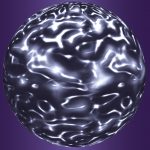Lien vers Pubmed [PMID] – 35240373
Lien DOI – 10.1016/j.ceb.2022.01.009
Curr. Opin. Cell Biol. 2022; 10.1016/j.ceb.2022.01.009
The homeostasis of cells depends on the selective degradation of damaged or superfluous cellular components. Autophagy is the major pathway that recognizes such components, sequesters them in de novo formed autophagosomes and delivers them to lysosomes for degradation. The recognition of specific cargo and the biogenesis of autophagosomes involve a dedicated machinery of autophagy related (ATG) proteins. Intense research over the past decades has revealed insights into the function of autophagy proteins and mechanisms that govern cargo recognition. Other aspects including the molecular mechanisms involved in the onset of human diseases are less well understood. However, autophagic dysfunctions, caused by age related decline in autophagy or mutations in ATG proteins, are directly related to a large number of human pathologies including neurodegenerative disorders. Here, we review most recent discoveries and breakthroughs in selective autophagy and its relationship to neurodegeneration.

